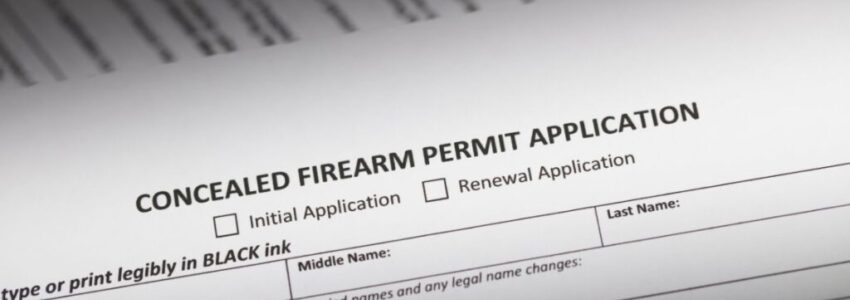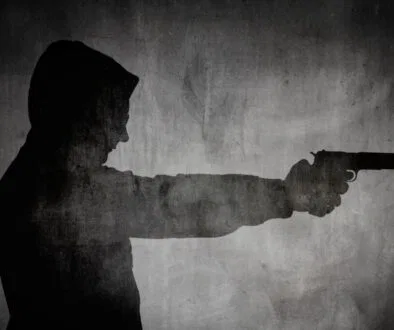Florida Concealed Carry Laws: What You Need to Know

Published March 25, 2022
The Second Amendment of the US Constitution guarantees the right of the people to bear arms. Because of this, every state has their own laws for carrying guns and other types of weapons. In this post, we’ll talk about Florida concealed carry laws.
In almost all states, including Florida, you are allowed to carry concealed weapons such as guns and certain types of ammunition. But you must have the necessary permits for those weapons. Otherwise, you could be looking at a felony charge with up to 5 years of jail time.
In addition to permits, the concealed carry laws in Florida also impose certain restrictions on the use of those weapons.
To help you avoid getting into legal trouble, here are some of the things you need to know about carrying a concealed weapon in Florida.
Eligibility for a Concealed Carry Permit
Florida uses a “shall-issue” policy in terms of concealed carry permits. This means that as long as you pass the eligibility requirements set by law, the state or issuing officer is legally bound to grant you a permit.
According to Florida Statute 790.06, to be eligible for a concealed carry permit, you must:
- be a resident and a citizen or a permanent resident alien in the US;
- be at least 21 years old;
- not be suffering from a physical disability that prevents the safe handling of a firearm;
- have not been convicted of a felony;
- have not been found guilty of a crime related to controlled substances or committed for the abuse of a controlled substance;
- not be chronically or habitually abusing alcohol to the extent that it impairs your judgment;
- demonstrate competence with a firearm;
- have not been declared an incapacitated person;
- have never been committed to a mental institution;
- have not been convicted of a felony or even a misdemeanor crime of domestic violence, unless 3 years have passed since the probation or any other conditions set by the court have been fulfilled;
- not have any current injunctions that prevent you from committing acts of domestic violence
Concealed carry licenses in Florida are valid for seven years. Once you have your permit, you need to bring it with you every time you carry your weapon. Failure to do so constitutes a noncriminal violation subject to penalties.
The state also issues licenses for non-Florida residents as long as they qualify with the state’s eligibility requirements.
What Types of Weapons Need License?
You’ll need a concealed carry permit for weapons such as:
- handguns
- knives
- billies
- electronic weapons or devices
- tear gas guns
Tasers and stun guns can be openly carried without a permit if they will be used for defensive purposes. A pepper spray with no more than 2 ounces of chemicals can be carried without a permit too.
While the second amendment protects our rights to bear arms, there are certain types of weapons that are strictly prohibited in Florida. Even if you are eligible for a concealed carry permit, you still won’t be issued one for weapons like:
- exploding bullets
- armor-piercing bullets
- “dragon’s breath” shotgun shells
- flechette shells
- bolo shells

Concealed Weapon License Reciprocity
Section 790.015 of the Florida Statutes provides for the state’s concealed weapon license reciprocity.
Under this, the state will honor concealed weapon licenses issued in states that honor Florida’s license. Provided, however, that the arms owner is at least 21 years old and a resident of the United States. You can find a list of the states who have reciprocity agreements with Florida here.
People who hold a valid license to carry a concealed weapon from other states may also apply for a similar license in Florida if they establish legal residence in the state. The license shall be valid for 90 days after the legal residence is established.
Where Can You Legally Carry a Weapon in Florida?
Even if you have a concealed carry permit, you can’t just bring your weapons anywhere you want.
In general, you can carry a licensed concealed weapon in places like:
- in your vehicle
- at roadside rest areas
- state/national parks and wildlife management areas
- in a restaurant (even one that serves alcohol)
In the following areas, however, carrying a concealed weapon is illegal regardless of permit:
- detention facilities, prisons, and jails
- courthouses
- polling places
- any place of nuisance
- legislative committee meetings
- colleges, schools, and school administration buildings
- professional athletic events not related to firearms
- governing body meetings (county, public school district, municipality or special district)
- elementary and secondary school facilities
- area technical centers
- courtrooms (except when allowed by the judge)
- any college or university facility except if you’re a student, employee or faculty member and the weapon in question is nonlethal
- the inside of a passenger terminal and sterile area of any airport (unless the firearm is encased for shipment)
- any place where carrying a firearm is prohibited by federal laws
Carrying a firearm in private establishments like hotels, restaurants, and workplaces will depend on the regulations of these establishments.
Should You Inform an Officer That You’re Carrying?
In Florida, you are not legally required to inform an officer that you’re carrying a concealed weapon unless they ask for it.
But if you feel more comfortable informing the police officer that you’re carrying a weapon, make sure to do so in a non-threatening way. Some officers may consider you more of a threat if you inform them that you’re armed. So keep your hands on the steering wheel during the interaction. You can also hand them your permit with your driver’s license.
If you feel like you’ve been treated unfairly, keep note of the officer’s badge number and name then report it to the proper channels. Don’t do anything that may escalate the situation. Remember that, at the end of the day, your safety is all that matters.
(Related: How Long Does It Take to Get a Court Date for a Felony?)
Advertisement
Save 90% Per Minute On Jail Calls With Us
US prisons charge lots of money per minute for long distance inmate calls. The loved ones of inmates are left to pay this bill. For a ten minute phone call you may find yourself paying over one hundred dollars. With SecurTel, you can reduce this charge to a fraction of the cost and only pay the local calling rate. Make calls from across the US or internationally for the local rate and help your family stay connected during a difficult time. Learn more about how to sign up for inmate calls here.

This Content Is Fact Checked
We have conducted thorough fact-checking on this content in-house. Get detailed insights into our website’s editorial standards by clicking here.

About The Author
Judy Ponio is the lead writer for the SecurTel blog. Her passion for true crime stories and criminal justice has fueled her work and inspired millions of readers around the world.



